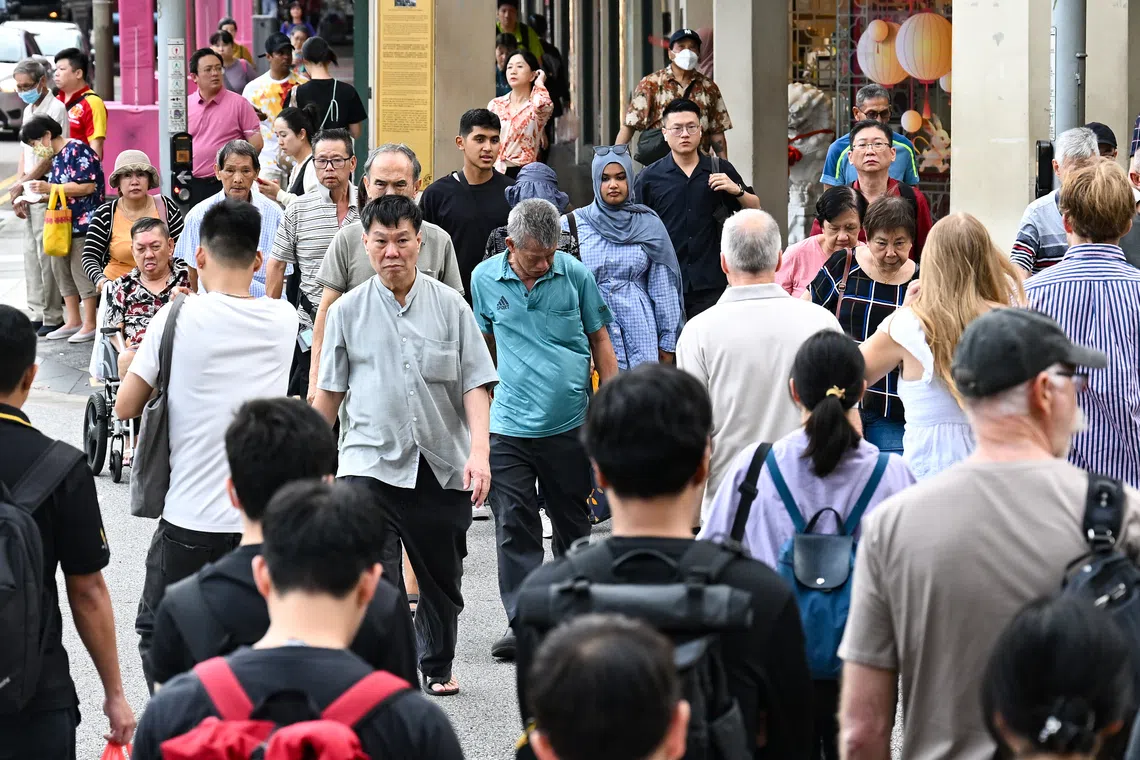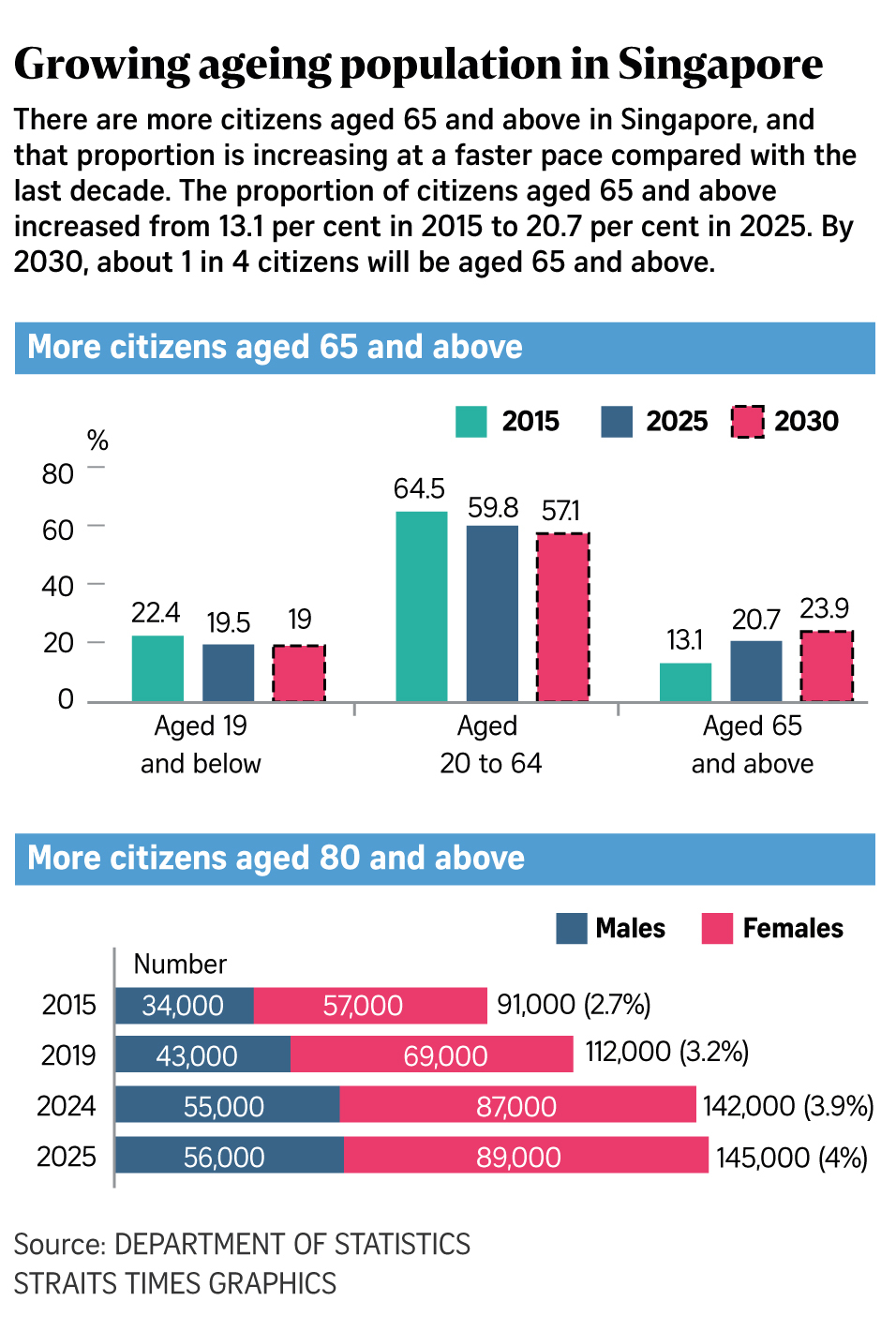Number of Singaporeans aged 80 and older jumped 60% in the past decade
Sign up now: Get ST's newsletters delivered to your inbox

Singapore is set to become a super-aged society in 2026, based on the UN's definition of a super-aged society – when 21 per cent or more of the population is aged 65 and older.
ST PHOTO: LIM YAOHUI
SINGAPORE – The number of Singaporeans aged 80 and older shot up by about 60 per cent in the past decade.
About 145,000 citizens belong to this age group in June 2025, up from 91,000 in June 2015. These seniors comprised 4 per cent of all Singaporeans in 2025, up from 2.7 per cent in 2015.
Within this group, about six in 10 are women.
The National Population and Talent Division published these numbers on Sept 29 in its annual Population In Brief report
These numbers come as Singapore is expected to become a super-aged society in 2026. This is based on the United Nations’ definition of a super-aged society, when 21 per cent or more of the population is aged 65 and older.
In 2025, 20.7 per cent of Singaporeans are already in this age group, up from 13.1 per cent in 2015.
The report said that the proportion of Singaporeans aged 65 years and older is rising, and at a faster pace compared with the last decade. About 24 per cent of citizens are projected to be aged 65 and above by 2030.
At the same time, the number and proportion of working-age people – usually defined as between 20 and 64 years of age – who are capable of providing economic support to older dependants has fallen, contributing to a declining old-age support ratio.
The proportion of those aged 20 to 64 has fallen from 64.5 per cent in 2015 to 59.8 per cent in June 2025.
Reflecting the ageing population, the median age of citizens here also rose from 43.4 in June 2024 to 43.7 in June 2025. It was 40.7 in 2015.
Data shows that Singapore’s population is ageing rapidly. In 2023, Health Minister Ong Ye Kung said Singapore had been preparing for being a super-aged society
Mr Ong said then: “Domestically, the biggest social transformation for this generation will be ageing.”
Nanyang Technological University assistant professor of sociology Shannon Ang said the 60 per cent rise in the number of seniors aged 80 and older is a significant increase.
It means that Singapore has to boost its infrastructure, such as in healthcare, housing and transport, to cater to the rapidly ageing population, he said. This comes as more families are likely to have to shoulder more responsibility to care for a senior.

Various schemes have been rolled out to address the growing needs of the elderly.
This includes the islandwide Age Well Neighbourhoods initiative
The first of these neighbourhoods will be launched in Toa Payoh, one of Singapore’s oldest towns, which has already achieved super-aged status.
It comes under the broader Age Well SG plan
The 2025 population report also noted that large cohorts of baby boomers, or those born after the end of World War II, have begun entering the post-65 age range. Baby boomers refer to those born from 1946 to 1964.


